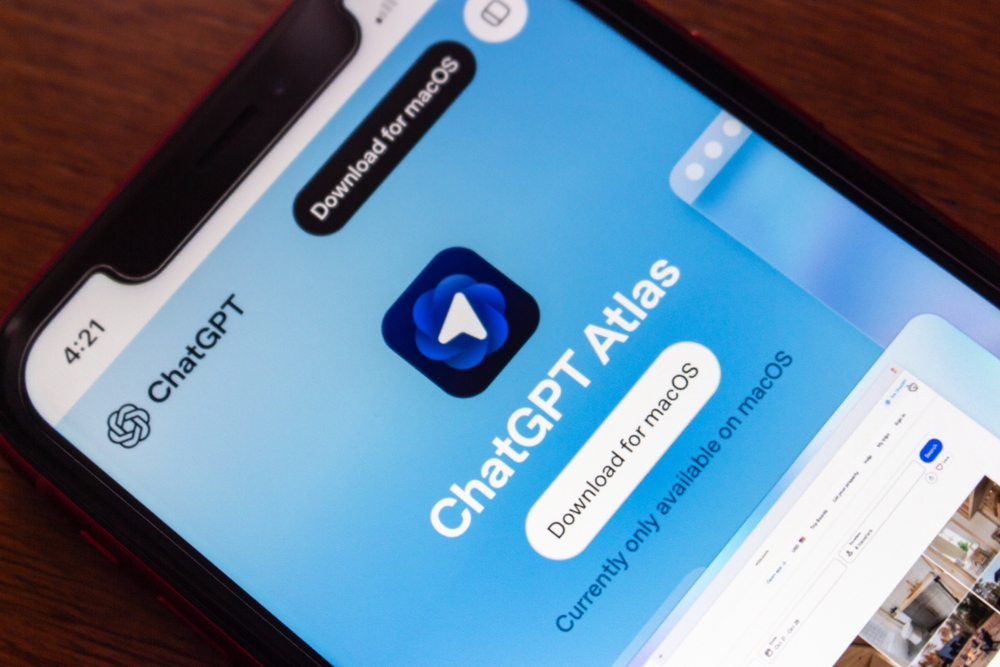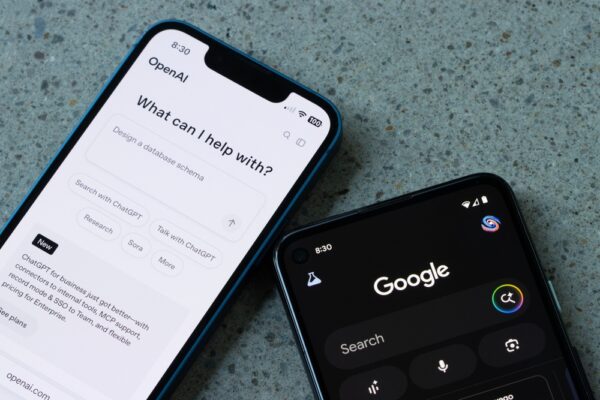
For 22 years, our marketing and content agency has led successful programs for B2B clients — driven by adaptation and constant research. Now, we have another new browser to investigate: OpenAI’s Atlas. Talk to Corrina, our insightful CMO, about how your company can get found on the multiple AI Engines. NOTE: It’s moved the from SEO to GEO + AIEO.
Here’s Why Business Owners Should Care About OpenAI Atlas
- It’s not built around search — it’s built around intelligence.
Traditional browsers are passive: you type, click, and scroll.
OpenAI Atlas is active. You tell it what you need — “find a recipe,” “book a flight,” “compare electric bikes” — and it does the legwork for you. That means fewer tabs, less jumping between apps, and less time wasted on repetitive browsing tasks. - It blends AI and the web into one seamless experience.
People are already using ChatGPT to summarize pages, find information, or draft messages. Atlas puts that directly into the browsing layer. No switching tools, no copy-pasting prompts — the AI is right there beside you, understanding what’s on the screen. - It could replace search as we know it.
For decades, the browser has been a portal to search engines. With Atlas, the AI itself becomes the search engine — and the action engine. This changes the hierarchy of the web. Instead of navigating manually, you’re directing intelligently. - It opens up real productivity gains.
Think of Atlas as a browser that works with you:- Auto-fills forms intelligently.
- Summarizes long articles instantly.
- Can perform tasks like online shopping, scheduling, or document drafting.
It’s like having a research assistant baked into your browser.
- It signals where all browsers are heading.
Even if people don’t switch immediately, Atlas is setting the direction for what Chrome, Safari, and Edge will need to become. Understanding it now helps people — and businesses — stay ahead of the next big interface shift in computing. - It raises new questions about privacy, trust, and control.
Atlas also brings a necessary conversation: how much of your online life should an AI see, remember, and act on?
Knowing how this technology works (and what trade-offs exist) empowers users to make informed decisions before AI becomes baked into every browser.

What Is OpenAI Atlas?
Among the team shaping this bold new chapter is Darin Fisher, a veteran of browser innovation. Fisher helped create Netscape Navigator, co-led development of Firefox, was a founding engineer for Google Chrome, and worked on the forward-thinking Arc browser. Now, he’s helping OpenAI rethink the browser from the ground up.
“The opportunity to come to OpenAI and infuse the AI model into all of this — and to think about how that can really transform the experience — was all kinds of super interesting to me,” Fisher says.
OpenAI Atlas is the company’s newly launched, AI-powered web browser — available exclusively on macOS (for now). Released less than two weeks ago, it’s already making waves in a market long dominated by Google Chrome.
Find out how your company stacks up – take this quick eye opening Credibility Questionnaire.
But Atlas isn’t just another browser. It’s built around ChatGPT, transforming every browsing session into an intelligent conversation.
“AI represents a rare, once-a-decade opportunity to rethink what a browser can be,” said OpenAI CEO Sam Altman during the Atlas launch livestream.
Unlike traditional browsers that passively display information, OpenAI Atlas acts as a partner. The AI understands web content, answers questions about it, summarizes pages instantly, and can even take actions on your behalf.
Its most impressive feature, Agentic Mode, allows the AI to complete complex, multi-step tasks — like shopping online, booking travel, or filling out forms. During a live demo, Altman’s team showed Atlas reading a recipe, adjusting quantities for a dinner party, and ordering the ingredients automatically.

Why OpenAI Atlas Is Different
What sets OpenAI Atlas apart is how seamlessly it blends AI reasoning with real-world browsing. Instead of jumping between tabs, search results, and chatbots, users simply ask Atlas — and the browser handles the rest.
Fisher describes this shift as turning the web into something interactive:
“Every page becomes a two-way experience — not just something you look at, but something you collaborate with.”
It’s the natural evolution of what browsers were always meant to be: smarter gateways to information.
The Privacy Debate Around OpenAI Atlas
Powerful as it is, OpenAI Atlas also raises new privacy and security questions.
Because it’s deeply integrated with ChatGPT, the browser can access and interpret the content of webpages, as well as user data connected to tasks like scheduling, emailing, or shopping. It can even store “browser memories” — details from past visits — to create a more personalized experience.
Some experts are wary. Tech writer Anil Dash argues that OpenAI may use early adopters of Atlas to fuel its data ecosystem, while Lena Cohen of the Electronic Frontier Foundation (EFF) warns that “agentic AI” introduces new levels of risk:
“Once your data is on OpenAI’s servers, it’s hard to know and control what they do with it,” Cohen said.
OpenAI has stated that the default setting in Atlas does not use user data for AI training, though people can opt in if they choose.
There’s also concern about “prompt injections” — snippets of malicious code hidden in websites that could trick the AI into taking unwanted actions. OpenAI acknowledges this as an open challenge and says it’s actively training models to ignore harmful commands.

The Bigger Picture: OpenAI Atlas vs. Google Search
The timing of OpenAI Atlas is no coincidence. As Google pushes its AI Overviews in search results, OpenAI is offering a completely different vision — one where the browser itself becomes the search interface.
Instead of typing into a search bar, users simply talk to Atlas. It finds information, summarizes it, and can take the next step — whether that’s booking a flight, analyzing a document, or buying something online.
This could fundamentally shift how we discover and act on information. As Chirag Shah, a professor at the University of Washington, notes:
“We’re in a stage where moving fast can have real consequences — not just for technology, but for people.”
The Future of Browsing Starts With OpenAI Atlas
For Darin Fisher, OpenAI Atlas is more than just another browser project — it’s the culmination of decades spent shaping how humans interact with the web.
From Netscape’s pioneering days to Chrome’s dominance and Arc’s creativity, Fisher has helped define every major browser generation. With Atlas, that story continues — but now, the web isn’t something you visit. It’s something you converse with.
Whether OpenAI Atlas becomes the next Chrome or simply sparks a new era of AI-first browsing, one thing is certain: it’s redefining what it means to be online.
Key Takeaways
- OpenAI Atlas is a next-generation AI browser powered by ChatGPT.
- It features an Agentic Mode that can take real-world actions like booking or shopping.
- Currently available on macOS, it’s expected to expand to more platforms soon.
- While innovative, Atlas raises new privacy and data security questions.
- It marks a turning point in how AI and the web are merging — blurring the line between browsing and conversation.
OpenAI Atlas isn’t just a product launch — it’s the beginning of a new kind of internet experience, one that’s more intuitive, personal, and intelligent than ever before.
Hop on our calendar to get found on the growing AI Engines. It’s time to talk GEO and AEO.




